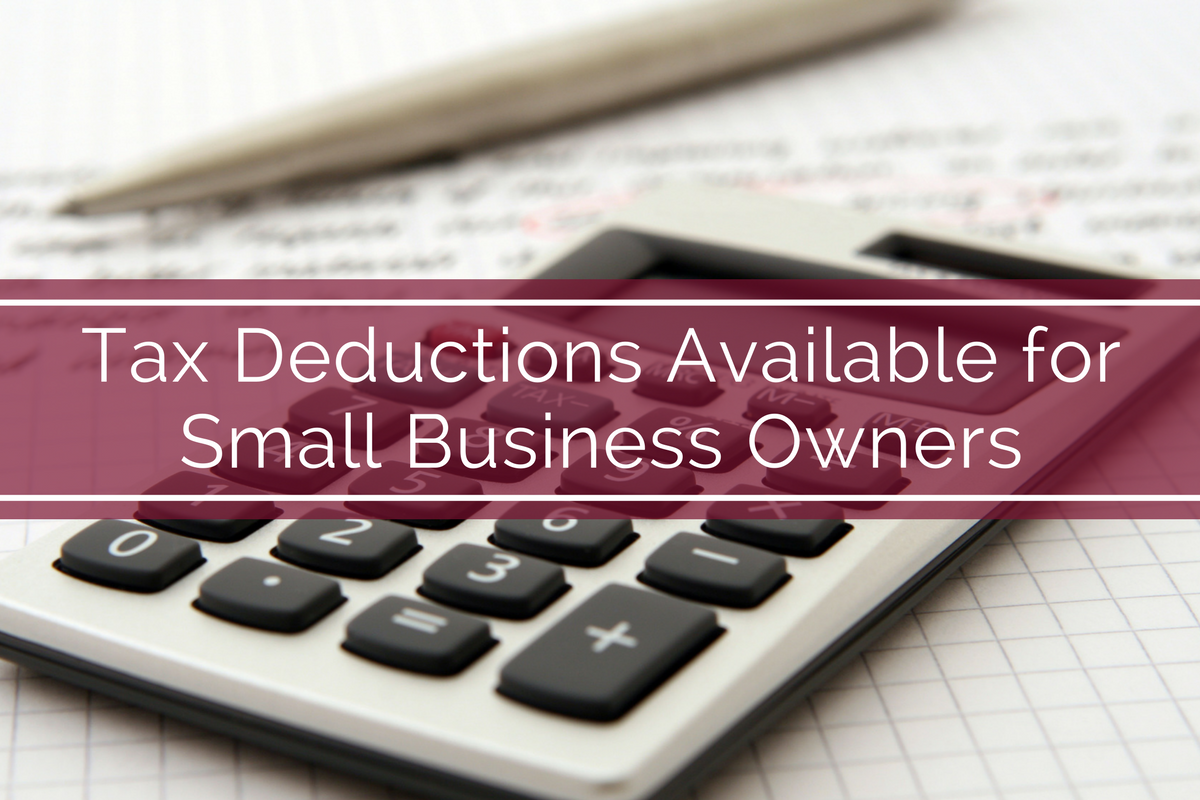
05 Mar Tax Deductions Available for Small Business Owners
Owning a small business comes with many challenges, such as paying for startup expenses, building inventory, and forging relationships with new customers. You may also struggle with filing taxes and meeting countless regulations, losing time and money. And yet despite these difficulties, politicians and Americans across the nation collectively agree that small businesses are the backbone of our country. In recognition of the economic growth that entrepreneurs provide, the IRS offers many tax deductions for small businesses. The trick is finding, identifying, and filing for all of the ones relevant to your company. Here are five crucial tax deductions that most small businesses can benefit from.
Basic expenses
Salaries, wages, office supplies, maintenance costs, and mortgage interest are a few simple deductions available to small business owners. Wages for employees, who do not include partners, LLC members, or sole proprietors, can be deducted from your taxes. In addition, the money you pay to rent out your office space is also fully deductible. If you purchase equipment for your business, its depreciation rate may also be deductible for purchases up to $500,000. Supplies, certain utilities, and general maintenance are generally eligible for deductions.
Home offices
If you use a room in your home exclusively for your business to service customers, clients, or patients, you may be able to deduct a portion of this expense. You can claim a home office deduction on your personal income taxes through “actual expenses” or a simplified method the IRS offers. Maintenance and repairs in the room for your business, as well as other indirect costs, will partially determine your actual expenses. Other, indirect expenses factor into your possible deduction, including rent, utilities, and insurance. The deduction is based on what percent of your home is used for your business.
If that sounds a little confusing, the IRS has a much simpler method. Multiply $5 by the square footage of your home that is used exclusively for business. This method can deduct as much as $1,500 from your taxes since the IRS stipulates a 300 square foot limit.
Carryovers
The IRS realizes how risky a small business can be. To help, the IRS offers carryover deductions for home offices, capital losses, and net operating losses. By carrying over these expenses into future years, taxable income can be reduced. Using the actual expenses method (but not the simplified approach), your business may be eligible for a home office deduction if your expenses are higher than your earned income. The bottom of Form 8829 of your previous tax statement lists your carryover amount.
In the unfortunate event of an operating loss, your business can recover slightly by either carrying back the loss for two years or by carrying forward the loss for 20 years. The latter will offset your future taxable income, but there no limit on the possible deduction.
Startup costs
Starting a business can be one of the most challenging, yet rewarding, experiences of your life. However, this accompanies the initial (and sometimes overwhelming) expenses of transportation, advertisements, consultant fees, training for employees, legal and accounting costs, and much more. Many of these expenses can be deducted up to $5,000 for qualifying startup costs and as much as $5,000 for organizational costs. However, if your overall costs exceed $55,000, the IRS requires you to amortize these expenses for the following 180 months of business operations.
Debt losses
In this case, debt losses refer to the money you have loaned out to clients, customers, employees, or former business partners that was never recovered. While this may be a devastating blow to your business, the good news is that you can potentially deduct it from your taxes. The IRS has three requirements for writing off debt losses. First, you need to have previously included the debt when you reported your gross income. Next, the IRS stipulates a “reasonable amount of time” to have passed with the debt remaining uncollected, and finally, that you have taken “reasonable steps to collect the debt but were unable to do so.” If a business loan has gone horribly wrong, the IRS may be able to slightly offset your loss by offering a tax deduction.
When filing your small business taxes, it is advisable to consult an accountant or legal professional. At the Bank of the Lowcountry, we are committed to providing excellent financial service to each of our valued customers. To learn more about the incredible benefits our bank offers to businesses, click here or give us a call at (843) 549-2265.





No Comments